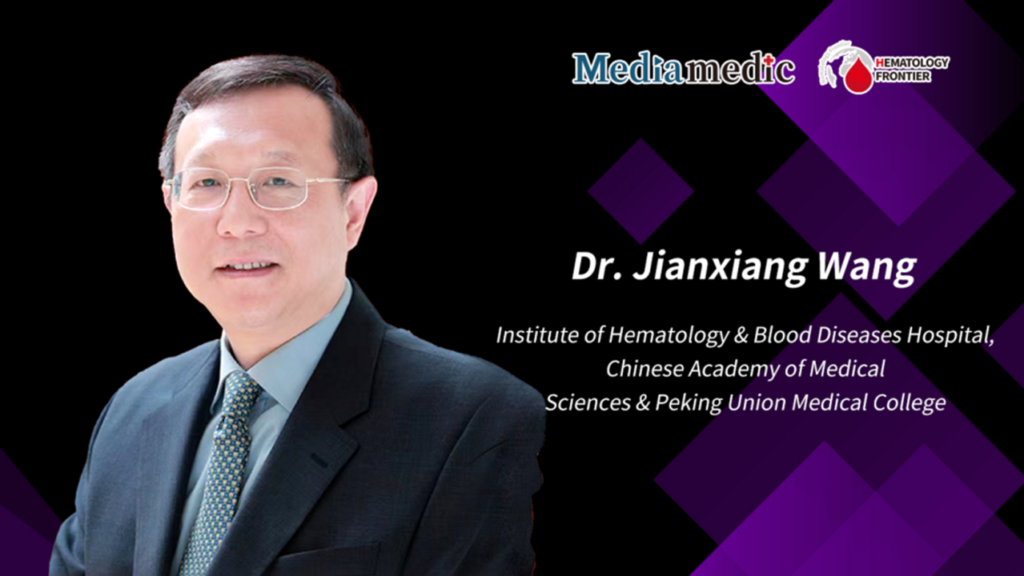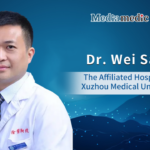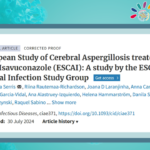
In early September 2024, the 5th Tianjin International Lymphoma Conference was held from September 6 to 8, amid the golden season of autumn. This conference featured 12 specialized sessions, including immunotherapy, basic translational research, and new drug development, creating a high-end academic platform for international exchange and collaboration. During the event, Hematology Frontier invited Dr. Jianxiang Wang from the Institute of Hematology & Blood Diseases Hospital, Chinese Academy of Medical Sciences & Peking Union Medical College to provide an in-depth analysis of the current state and future trends of CAR-T cell therapy in China from his academic perspective.Hematology Frontier: What unique challenges does China face in the practice of CAR-T therapy for hematologic malignancies? What innovative treatment strategies or technologies has your team developed to help overcome these challenges?
Dr. Jianxiang Wang: In recent years, China has made substantial progress in CAR-T cell therapy for hematologic malignancies. Many researchers across the country have designed and conducted multiple clinical trials targeting different antigens with CAR-T cell therapies. These studies have not only confirmed the remarkable efficacy of CAR-T therapy but also demonstrated China’s innovative strength in this field.
One of the main challenges we currently face is how to effectively apply these CAR-T products in clinical practice and standardize their use. Additionally, CAR-T therapy should not be limited to only a few hospitals or departments. Through industrialization and standardized application, this advanced treatment should benefit a broader range of patients, both domestically and internationally.
The Institute of Hematology & Blood Diseases Hospital, Chinese Academy of Medical Sciences & Peking Union Medical College has made significant strides in CAR-T therapy research and development, successfully developing CAR-T therapies for various diseases, including B-cell, T-cell, and plasma cell lymphomas. These therapies have shown promising results in both in vitro and in vivo experiments.
Notably, CAR-T therapy targeting CD19 has completed new drug clinical trials and received market approval. At the same time, CAR-T therapy targeting CD19/CD22 dual antigens is currently undergoing registration clinical trials. In addition, several other CAR-T therapies are being investigated in clinical studies initiated by researchers. Through continuous innovation and exploration, we aim to bring more CAR-T therapies through clinical validation and into clinical practice, ultimately benefiting patients in China.
Hematology Frontier: Recently, what exciting scientific achievements and drug development progress have been made in CAR-T therapy in China? Could you highlight some landmark cases, particularly innovative drugs or research projects that have shown promising results in clinical application?
Dr. Jianxiang Wang: China has made breakthrough progress in CD19-targeted CAR-T therapy for treating lymphoma and lymphocytic leukemia, while BCMA-targeted CAR-T therapy has brought new hope to patients with multiple myeloma. As medical research continues to deepen, a series of novel CAR-T products are gradually being applied clinically. For instance, CD7-targeted CAR-T therapy has shown good efficacy in treating T-cell leukemia and myeloid leukemia, further expanding the application of CAR-T therapy. Especially worth mentioning is the CAR-T therapy targeting GPRC5D, which has demonstrated excellent efficacy in treating multiple myeloma, opening new avenues for treating this difficult-to-treat disease. Moreover, combining CAR-T therapy with transplant techniques has proven effective in improving outcomes for high-risk patients, marking further optimization and upgrading of individualized treatment strategies.
In the CAR-T therapy pipeline, many new CAR-T products are in the clinical trial phase, focusing not only on overcoming resistance mechanisms but also on enhancing efficacy, with promising clinical data. Additionally, researchers are exploring the possibility of using immune cells other than T cells as CAR carriers, with CAR-NK cell research being particularly active. By optimizing cell preparation processes, accelerating production timelines, and even developing universal CAR-T/CAR-NK products, these therapies could be more easily applied in clinical settings, improving the experience for both doctors and patients.
In summary, China’s advancements in CAR-T therapy include innovations in target selection, mechanisms of action, and cell preparation technologies. These efforts have enriched the treatment options for hematologic malignancies and brought hope and relief to more patients.
Hematology Frontier: How do you view China’s contribution and potential in the global CAR-T therapy field? What future research directions and treatment strategies should China focus on in CAR-T therapy?
Dr. Jianxiang Wang: In the CAR-T field, China is undoubtedly at the forefront of innovation, with new targets and advanced technologies continuously emerging from laboratory research to widespread clinical application. However, one core challenge we face is that despite the variety of CAR-T products available in China, the number of patients benefiting from these therapies remains relatively low. This reality prompts us to consider how we can extend these cutting-edge technologies to reach more patients and what pathways we can take to serve patient populations more effectively.
To overcome this challenge, we must shift part of our research focus toward translating existing achievements into practical applications. It is not enough to pursue excellence in scientific research; we must also explore efficient and feasible ways to turn these technologies into actual treatment methods, ensuring that these innovations make a real impact.
Specifically, we can improve CAR-T therapy accessibility by optimizing preparation processes and reducing costs. Establishing a comprehensive treatment system, including setting unified standards and training specialized teams, is essential to ensure that patients receive comprehensive and professional care. Additionally, increasing public awareness of CAR-T therapy and patient education is crucial for its wider acceptance. Gaining government and regulatory support is also a key factor, such as increasing funding for research, enacting supportive policies, and pushing for the inclusion of CAR-T therapy in medical insurance schemes, all of which will provide strong backing for its clinical application.
In conclusion, our ultimate goal is to make CAR-T therapy more accessible to a larger patient population, improving their health outcomes. Achieving this requires coordinated efforts across multiple areas, including research, medical care, and policy, to propel the development and application of CAR-T therapy in China to new heights.
Dr. Jianxiang Wang Chief Clinical Expert at the Institute of Hematology & Blood Diseases Hospital, Chinese Academy of Medical Sciences & Peking Union Medical College Director of the National Center for Clinical Medical Research of Hematological Diseases Professor, Chief Physician, Ph.D. Supervisor First Tenured Professor at the Peking Union Medical College of the Chinese Academy of Medical Sciences Recipient of the National Hundred, Thousand, and Ten Thousand Talents Program Chairperson of the 10th Committee of the Hematology Branch, Chinese Medical Association Vice President of the Internal Medicine Physicians Branch and Hematology Physicians Branch of the Chinese Medical Doctor Association Honored Expert in Tianjin, Haihe Medical Scholar, First Tianjin Famous Doctor Recipient of the “Top Ten Medical Workers” Award in Tianjin and “China’s Good Doctor” Monthly Honor
Professor Wang has been engaged in clinical and basic research on hematological diseases for many years, with rich clinical experience in diagnosing and treating various blood disorders. He is currently focused on clinical and basic research related to leukemia and hematologic malignancies.


